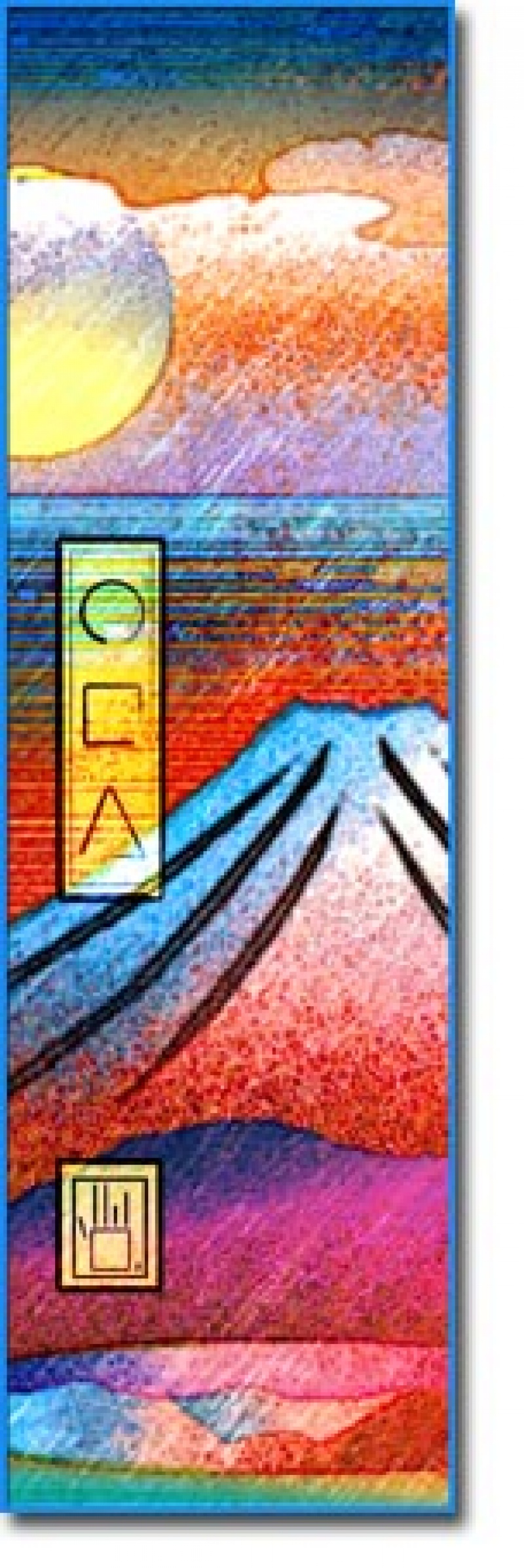On The Way: The Daily Zen Journal
The Ultimate Way
Yuan-wu (1063-1135)
The ultimate Way is simple and easy, yet profoundly deep. From the beginning it does not set up steps. Penetrate directly through to freedom and make it so that there is not the slightest obstruction at any time, twenty-four hours a day, with the realization pervading in all directions.
Then your heart will be clear, comprehending the present and the past. Picking up a blade of grass, you can use it for the body of Buddha; taking the body of the Buddha, you can use it as a blade of grass. From the first there is no superiority or inferiority, no grasping or rejection.
When your insight penetrates freely and its application is clear, then even in the middle of complexity and complication, you yourself can move freely without sticking or lingering anywhere. Thus, without setting up any rigid views or maintaining any state, respond freely: “when the wind blows, the grasses bend.”
When you enter enlightenment in actual practice, you penetrate to the profound source, cultivating this until you realize freedom of mind, harboring nothing in your heart. Did the Zen founder actually “bring” this teaching when he came to China from India? He just pointed directly to the inherent nature in every one of us, clear and clean, to not be stained by so much false knowledge and false consciousness, delusory conceptions, and judgments.
Study must be true study. Open your heart, without the slightest sense of the ordinary or the holy and see for yourself. When you do not seek outside, real truth is always there, resting peacefully, immutable. No one can block this  realization, not even a thousand sages or teachers; having attained a pure, clean and naked state, you pass through to the other side of the empty eon. Why even speak of seeking from others?
realization, not even a thousand sages or teachers; having attained a pure, clean and naked state, you pass through to the other side of the empty eon. Why even speak of seeking from others?
The Zen masters were all like this, ever since the founders. Take the example of the Sixth Patriarch: he was an illiterate woodcutter in south China, but when he came and met the Fifth Patriarch, at their first meeting he opened his heart and clearly passed through to freedom.
Once you merge your tracks in the stream of Zen, spend the days silencing your mind and studying with your whole being, knowing this great cause is not attained from anyone else. It is just a matter of bearing up bravely and strongly, day by day dropping away, like pure gold smelted and refined thousands of times.
This work lies in one's conduct: in everyday life's varied mix of myriad circumstances, in the dusty hubbub, amidst the ups and downs of situations. Be present and clear without being too distracted by any of it. Actively transmute confusion into clarity. Keep to the middle way, immune to outside influences; this is your own measure of power.
On reaching emptiness, there is no duality between noise and quiet. Even when it comes to extraordinary words, marvelous statements, unique acts, and absolute perspectives, you just level them with one measure. Ultimately they have no right or wrong, it's all in how you use them.
When you have continued grinding and polishing yourself like this for a long time, you will be free in the midst of birth and death and look upon society's useless honor and ruinous profit as like dust in the wind, phantoms in dreams, flowers in the sky. Passing unattached through the world, would you not then be a great saint who has left the dusts?
When Zen study reaches this point, one is flexible, compassionate, and empty, not susceptible to human deceptions.
Yuan-wu (1063-1135)
Excerpted from The Five Houses of Zen Thomas Cleary




Once again Yuan-wu gently leads us ahead in our understanding of a life of Practice. While many leave practice on their cushion or at the end of a sesshin, feeling that they've really attained something by the merit of these activities, the real test of practice meets us headon throughout the day.
While there are many “realizations” to be had in practice, the ones that have the greatest impact are the ones that help us jump over ourselves in everyday life to take the higher path in each situation. The insights that are taken into our marrow and that affect our actions in the world around us are the ones that seem most powerful.
For too many the distinction between head learning and what we can effectively “do” with this knowledge is a vast chasm to cross. Practice is a way of action and stillness. For each one of us the paths of action are individual but have universal principles in terms of choice.
Life itself is a powerful teacher. To stay flexible, open, and sincere at each juncture is worth a lifetime of “practice.” To be a truly compassionate person requires the ability to respond sincerely, being comfortable with the apparent contradictions, confident in one's ability to choose actions with heart/wisdom.
Keep looking, keep questioning yourself as well as life around you, and the adventure of practice becomes alive in each moment.
With Enthusiasm,
Elana, Scribe for Daily Zen